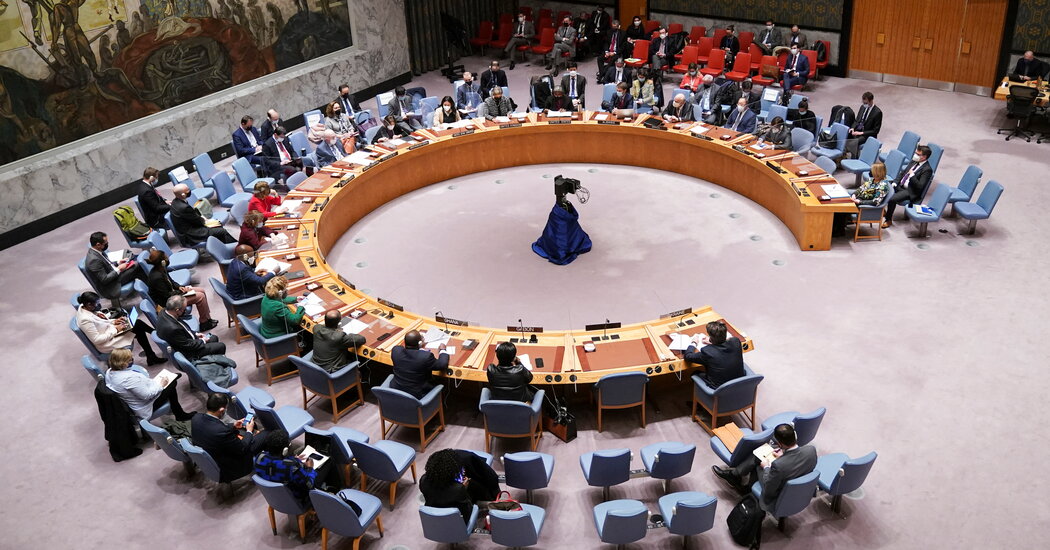With a fiery speech, the stroke of a pen and the dispatch of armed forces, the Ukraine conflict has entered a perilous new chapter.
Late Monday, after a day of events clearly choreographed for maximum dramatic effect, Russia’s president, Vladimir V. Putin, delivered an impassioned address to his citizens, describing in the most unsparing of terms what lies ahead.
Mr. Putin may not have told his Russian audience that his country intended to invade its neighbor, but little else was left unsaid.
Ukraine, he said, was a “country created by Russia.” A crumbling Soviet Union had been wrong, he said, to simply let it and its fellow republics go their own way. And now Ukraine is little more than a “puppet” of the United States, its leaders solely responsible for whatever “bloodshed” may come next.
“As for those who captured and are holding on to power in Kyiv,” he said, referring to the Ukrainian capital, “We demand that they immediately cease military action.”
That was the fiery speech. Next came the pens, wielded by the Russian president and the self-styled leaders of the two breakaway republics in Ukraine’s east whose independence Moscow had just announced it was recognizing in a calculated provocation to the West.
Mr. Putin signed decrees recognizing the so-called Donetsk and Luhansk People’s Republics, which were created after Russia fomented a separatist war in eastern Ukraine in 2014. Mr. Putin also signed “friendship and mutual assistance” treaties with them.
Alarmed Western observers barely had time to start conjecturing about whether Moscow might now move to station troops inside the territory of the two regions, regarded by most of the rest of the world as just another part of Ukraine, when the Kremlin announced that it was doing just that: Russian troops were on their way to eastern Ukraine.
Western leaders were incensed at the day’s events, if perhaps not terribly surprised. After all, in recent weeks, some 150,000 to 190,000 Russian troops, by Western estimates, had gradually drawn a noose around their neighbor, and the United States had warned repeatedly that the question about an invasion was not if but when.
On Monday, a top White House official denounced Mr. Putin’s hourlong speech, calling it “an attack on the very idea of a sovereign and independent Ukraine.”
European leaders condemned the decision to recognize the breakaway regions. Britain’s foreign secretary accused Moscow of “flagrant disregard” for its commitments. And Ukraine demanded that the U.N. Security Council hold an emergency meeting, which took place late Monday night in New York.
White House officials said that President Biden would impose economic sanctions on the two separatist regions of Ukraine, and that a further Western response would be announced on Tuesday — by which time, several of Mr. Biden’s aides said, they expected to see Russian forces rolling over the border into Ukraine, crossing the line that Mr. Biden had set for imposing “swift and severe” sanctions on Moscow.
Video clips of military convoys moving through the separatist territories circulated on social media overnight, but there was no immediate, official confirmation that these were Russian troops, not the forces of the Russian-backed separatists.
President Volodymyr Zelensky of Ukraine, in a televised statement, urged Ukraine’s allies to take action immediately and called for the Ukrainian people to remain calm.
“We are on our own land,” he said. “We are not afraid of anything or anyone.”


























